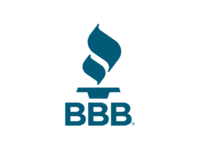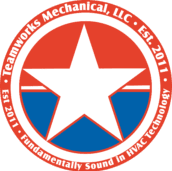Boiler Safety & Regulations: Ensuring a Secure & Efficient Heating System
Boilers play a critical role in providing comfort and warmth in homes, offices, and industrial settings. These essential heating systems are designed to generate hot water or steam for various applications, including space heating, cooking, and power generation. While boilers offer numerous benefits, they also pose potential risks without routine boiler repair and proper maintenance.
The Significance of Boiler Safety
In this blog post, Teamworks Mechanical explains the importance of boiler safety and the regulations that govern their operation, ensuring a secure and efficient heating system.
Boilers are complex machines that involve the controlled combustion of fuel to generate heat. This process can be hazardous if not adequately managed. The following are some of the key reasons why boiler safety is of paramount importance:
- Preventing Accidents: A poorly maintained or malfunctioning boiler can lead to devastating accidents, such as explosions, fires, and gas leaks, which may result in injuries or even fatalities.
- Avoiding Property Damage: Boiler-related accidents can cause extensive damage to property, leading to costly repairs and disruptions.
- Ensuring Efficiency: Regular maintenance and adherence to safety guidelines contribute to the efficient functioning of boilers, optimizing fuel consumption and reducing energy costs.
- Environmental Concerns: Boilers that do not operate efficiently may produce excessive emissions, contributing to air pollution and environmental degradation.
Key Boiler Safety Regulations
To mitigate the risks associated with boilers and ensure safe operations, governments and regulatory bodies have established stringent safety standards and regulations. These regulations encompass various aspects of boiler design, installation, operation, and maintenance. Some of the essential boiler safety regulations include:
- ASME Boiler and Pressure Vessel Code: Developed by the American Society of Mechanical Engineers (ASME), this widely adopted code provides guidelines for the construction and maintenance of boilers and pressure vessels, ensuring their safe operation.
- Occupational Safety and Health Administration (OSHA) Standards: OSHA sets workplace safety regulations, including those related to boilers, to protect workers from potential hazards and accidents.
- National Fire Protection Association (NFPA) Standards: NFPA publishes codes and standards, such as NFPA 85 for boiler and combustion systems, aimed at preventing fires and explosions in industrial and commercial settings.
- Boiler Inspection and Certification: Many jurisdictions require professional installation and regular inspections of boilers by certified professionals to assess their safety and compliance with regulations.
- Emission Standards: To address environmental concerns, emissions from boilers may be subject to specific limits set by environmental agencies to control air pollution.
Practical Boiler Safety Measures
While regulations provide a framework for boiler safety, there are several practical measures that boiler owners and operators can implement to enhance safety:
- Regular Maintenance: Scheduled inspections and maintenance by qualified technicians can identify and address potential issues before they escalate.
- Operator Training: Proper training of boiler operators ensures they understand safety protocols and can respond appropriately in various situations.
- Pressure Relief Valve: Installing and maintaining pressure relief valves is crucial to prevent excessive pressure buildup, which can lead to explosions.
- Water Treatment: Treating boiler water helps prevent corrosion and scale buildup, enhancing boiler efficiency and longevity.
- Emergency Preparedness: Establishing emergency procedures and providing adequate safety equipment can mitigate risks during accidents.
Boiler safety is a critical aspect of owning and operating a heating system. Adherence to regulations and the implementation of practical safety measures not only protect lives and property but also contribute to the efficient and sustainable functioning of boilers. Whether it's in our homes or industrial facilities, prioritizing boiler safety ensures a warm, comfortable, and secure environment for everyone.




















